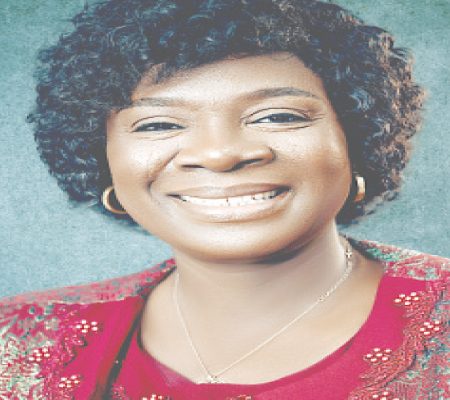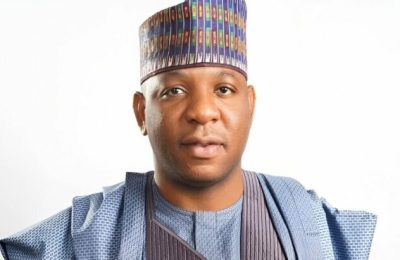
Prisca Adejumo has a PhD in Medical Sociology and another one in Nursing. She is also a professor of Nursing at the University of Ibadan (UI) and the founder of the Focusing on Young Nurses Initiative (FYNI). In this interview by Kingsley Alumona, she speaks about her work and research in cancer, HIV/AIDS, and genetic counselling, among other issues.
YOU have a bachelor’s degree, two master’s degrees, and two PhDs. How did it all begin?

It all began with a passion for healthcare and a desire to make a positive impact in the lives of others. From an early age, I was drawn to the field of nursing and intrigued by the intersection of healthcare and social sciences.
My journey started with obtaining a bachelor’s degree in nursing, which provided me with a solid foundation in clinical practice, patient care, and healthcare delivery.
My first master’s degree in Nursing allowed me to explore specialised areas of nursing practice, research, education, and administration, according to my interests and career goals. My second master’s degree in Medical Sociology provided me with insights into the social, cultural, economic, and political factors that influence health and healthcare, complementing my nursing education and practice.
My PhD in Medical Sociology enabled me to address complex healthcare issues from multiple perspectives, integrate insights from both disciplines, and make a meaningful impact on healthcare policy, administration, practice, and education. My second PhD in Nursing allowed me to conduct in-depth research, contribute new knowledge to the nursing profession, and prepare future nurse leaders, educators, administrators and researchers.
Each degree represents a milestone in my journey of personal and professional growth, contributing to my expertise, leadership, and impact in the field of healthcare.
What does medical sociology entail?
The main relevance of studying sociology in nursing is to understand human nature. By understanding the patient’s customs and personal ideals, nurses can understand the concerns of their patients. This also helps us carry out our duties as nurses in a way that will both benefit us, the patients or clients as the case may be, as well as the larger society. Sociology enables me as a nurse to understand my social responsibility as an agent of change. Whenever I have the privilege of contributing to my patients’ healing process or making them feel better, I am also improving the quality of their lives and it gives me joy, pleasure, and happiness that comes with a sense of fulfilment.
In what ways do you combine nursing and medical sociology practices in your research to solve medical and societal problems?
Combining nursing and medical sociology practices in research offers a potent strategy for tackling health and societal challenges. Medical sociology provides a lens through which to understand the impact of social factors such as age, socioeconomic status, race, and gender on health outcomes. As a sociologist, with a nursing background, I tried as much as possible to integrate all these into patient care, administration, education and research.
Through community-based participatory research, I also engage communities in research settings, leveraging qualitative methods to gain insights into patient perspectives and experiences. This interdisciplinary approach informs the design of my various interventions promoting health behaviour change, leading to more effective outcomes and nuanced approaches to addressing health disparities locally, nationally, and internationally, fostering collaborative and interprofessional-minded outcomes as reflected in my list of publications.
One of your research endeavours focuses on HIV/AIDS. How have your research findings in this area helped the government and community health workers manage the spread of the disease in the country?
During this course, several publications have emanated through individual and collaborative efforts to advance the information on gender, emphasising the preponderance of HIV/AIDS in males, unlike previous findings with preponderance in females, which resulted in a particular focus on males for reproductive counselling and education on HIV/AIDS. I also focused on women and children’s vulnerability to HIV/AIDS in southwestern Nigeria and demonstrated the place of the nursing profession. I confirmed the loss of cultural ethics and ethos in driving the spread of HIV/AIDS. I emphasised my focus on the role of society in creating awareness and prevention of HIV/AIDS and the need for total nursing care and support for people living with this chronic disorder requiring professional nursing care.
These efforts have, therefore, emphasised the role of nursing research in creating awareness and paradigm shifts in HIV/AIDS care and prevention and by extension helped community health workers and the government to manage the spread of the disease in the country.
Do you think there would ever be permanent care for HIV/AIDS?
I strongly believe this, as there is no permanent situation. We have experienced various diseases and conditions that once had no cure and the situation changed and a cure emerged. The drive and search for a permanent cure for HIV/AIDS is however age-long and still ongoing challenge. Significant progress has been made in managing the virus through antiretroviral therapy (ART), which can suppress viral replication and prolong life expectancy.
However, despite this advancement, a complete cure is still elusive. This is fueled by various obstacles such as stigma and stigmatisation, which contribute to the difficulty in finding a cure. The stigma associated with HIV/AIDS continues to impede efforts towards finding a cure by discouraging testing, treatment adherence, and participation in research studies. This is grossly affecting the pace of scientific discoveries and clinical trials focused on finding a cure.
While achieving a permanent cure for HIV/AIDS remains a formidable challenge, ongoing research efforts, advances in technology, and global collaboration offer hope for eventual success. In the meantime, continued investment in prevention, treatment, and support services remains crucial in mitigating the impact of the epidemic.
You also research cancer genetic counselling and cancer care. What does cancer genetic counselling mean?
Cancer genetic counselling involves the provision of information and support to individuals and families who may be at risk of hereditary cancer due to genetic factors. The goal is to help individuals understand their risk, make informed decisions about genetic testing, and navigate available options for cancer prevention, early detection, and management.
Cancer genetic counselling is not solely for cancer patients. It is also beneficial for individuals with a family history of other diseases such as diabetes, stroke, SCD or those who may be concerned about their risk of developing such conditions in the future.
Cervical and breast cancers are the major cancers affecting women in Nigeria. In what ways do you sensitise women and the government on how to manage and treat these diseases?
As a professional nurse and researcher, I have been involved in organising a series of workshops and seminars in local communities to educate women about the symptoms, risk factors, and prevention methods for cervical and breast cancers.
As a member of the University College Hospital (UCH) Multidisciplinary Tumour Board, we have conducted regular free or subsidised health screenings for early detection of breast cancers, including mammograms for breast cancer. I have also partnered with local health clinics and NGOs to increase the reach and frequency of these screenings. Operation Stop Cervical Cancer is a ready example at UCH for the female health workforce including Pap smears. Teaching women and young undergraduate students at their halls of residence of the University of Ibadan about how to perform breast self-examinations and understand the importance of regular check-ups. Others include the development of patient educational materials on cancer genetic counselling and placing them in strategic positions at UCH, and encouraging the inclusion of cancer education in school curricula to raise awareness from a young age.
I have also supported and researched the prevalence and outcomes of cervical and breast cancers in Nigeria to inform policy and resource allocation and to advocate for the creation of a national cancer registry to track and manage cancer cases effectively.
Someone as busy as you are, how do you create time and where do you get the funds to engage in this demanding and expansive work?
In my little contributions, God has helped me with the gift of men including my husband. I have seasoned mentors and mentees who have assisted me in my academic journey. They opened my eyes to the importance of collaboration and networking. I understood early that research is a veritable tool to advance growth and development in any profession. Therefore, no matter how busy I am, there will always be residual energy for valuable research activity to expand the frontier of knowledge and impact positive outcomes in patient care or education.
Regarding creating time, it is a matter of priority. Anything you consider a priority will always attract time. Surprisingly, one of the essential elements in life that is not only freely given but given equally to everyone is time.
Funds are from grants, either obtained directly or through mentors such as Professor Olufunmilayo Olopade and Professor Ojengbende, and organisations like AFREhealth and FAIMER.
You are the founder of the Focusing on Young Nurses Initiative (FYNI). Tell us about the organisation.
FYNI is dedicated to empowering and supporting young nurses in their professional development, advocacy, and leadership journey.
Here are some key aspects of FYNI’s work and the benefits it brings to nurses and society: Professional development, mentorship and networking, advocacy and representation, community engagement, and leadership development. By investing in the growth and success of young nurses, FYNI contributes to building a stronger, more resilient nursing workforce and enhancing healthcare delivery for the benefit of individuals and communities.
Apart from teaching and research, what else do you do? And how do you relax or manage the stress associated with your work?
Apart from teaching and research, I engage in several activities to maintain a balanced lifestyle and manage the stress associated with my work.
Regular physical exercise is essential for my overall well-being and stress management. We invested in a treadmill at home as I enjoy indoor activities, which help me stay active, relieve tension, and clear my mind. I also love swimming but do not enjoy wearing a swimming suit so often I do not swim.
Spending quality time with family and friends is important to me to recharge and maintain social connections. Whether it’s having dinner together, watching a movie, or simply enjoying each other’s company, these moments bring joy and fulfilment to my life.
Practising mindfulness and meditation techniques help me cultivate a sense of calmness, clarity, and inner peace amidst the demands of my work. Reading books, and articles, or listening to podcasts on topics of interest outside of my professional field allows me to expand my knowledge, stimulate my mind, and explore new ideas and perspectives.
Volunteering my time and skills to support causes that are meaningful to me brings a sense of fulfilment and purpose, for example, mentoring students, and younger colleagues, and giving back to others enriches my life and helps me stay grounded.
Overall, maintaining a healthy work-life balance and prioritising self-care are essential for managing stress and promoting well-being.
ALSO READ: Troops arrest notorious kidnapper, suspected informants in Oyo, Abuja








